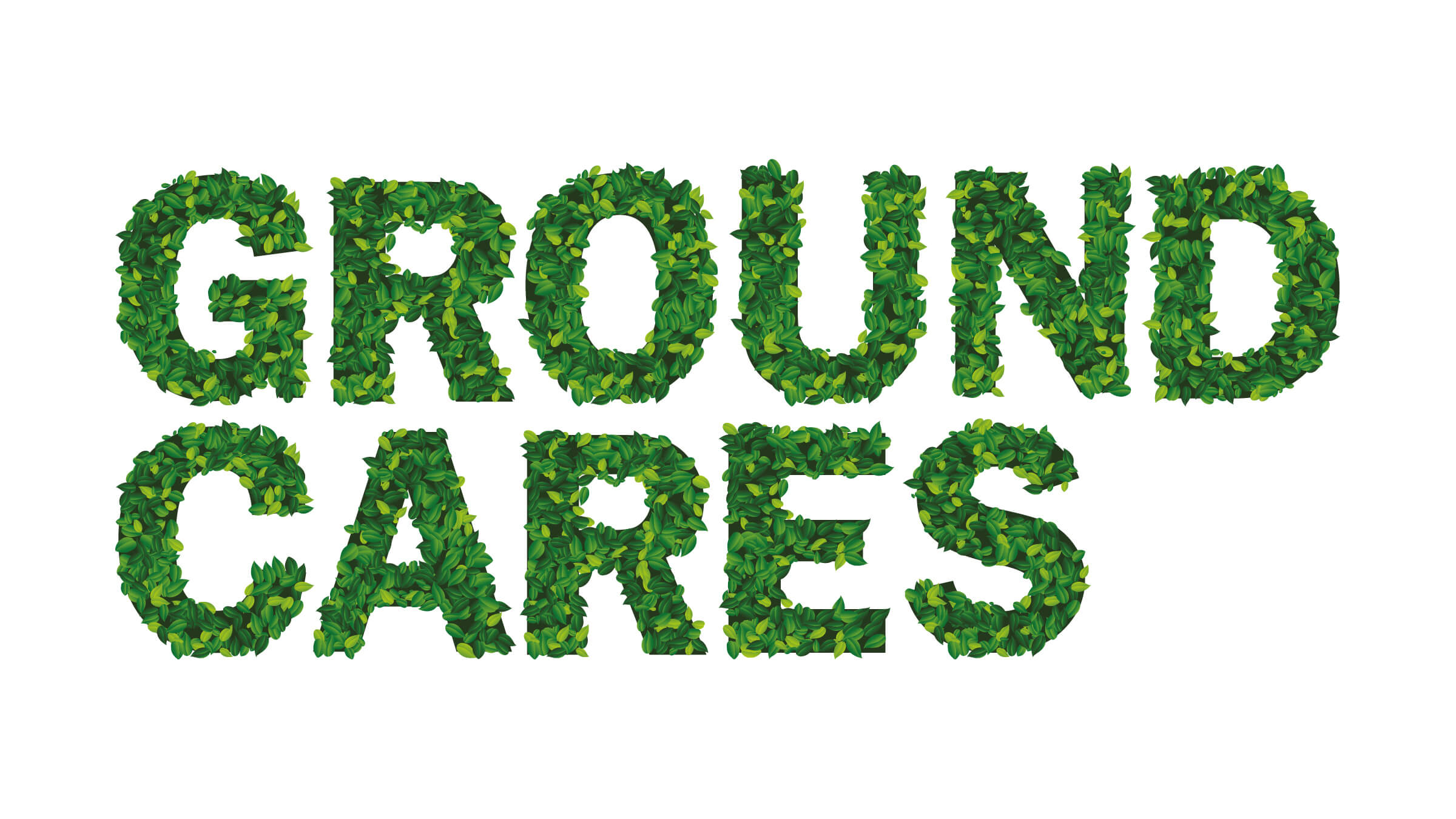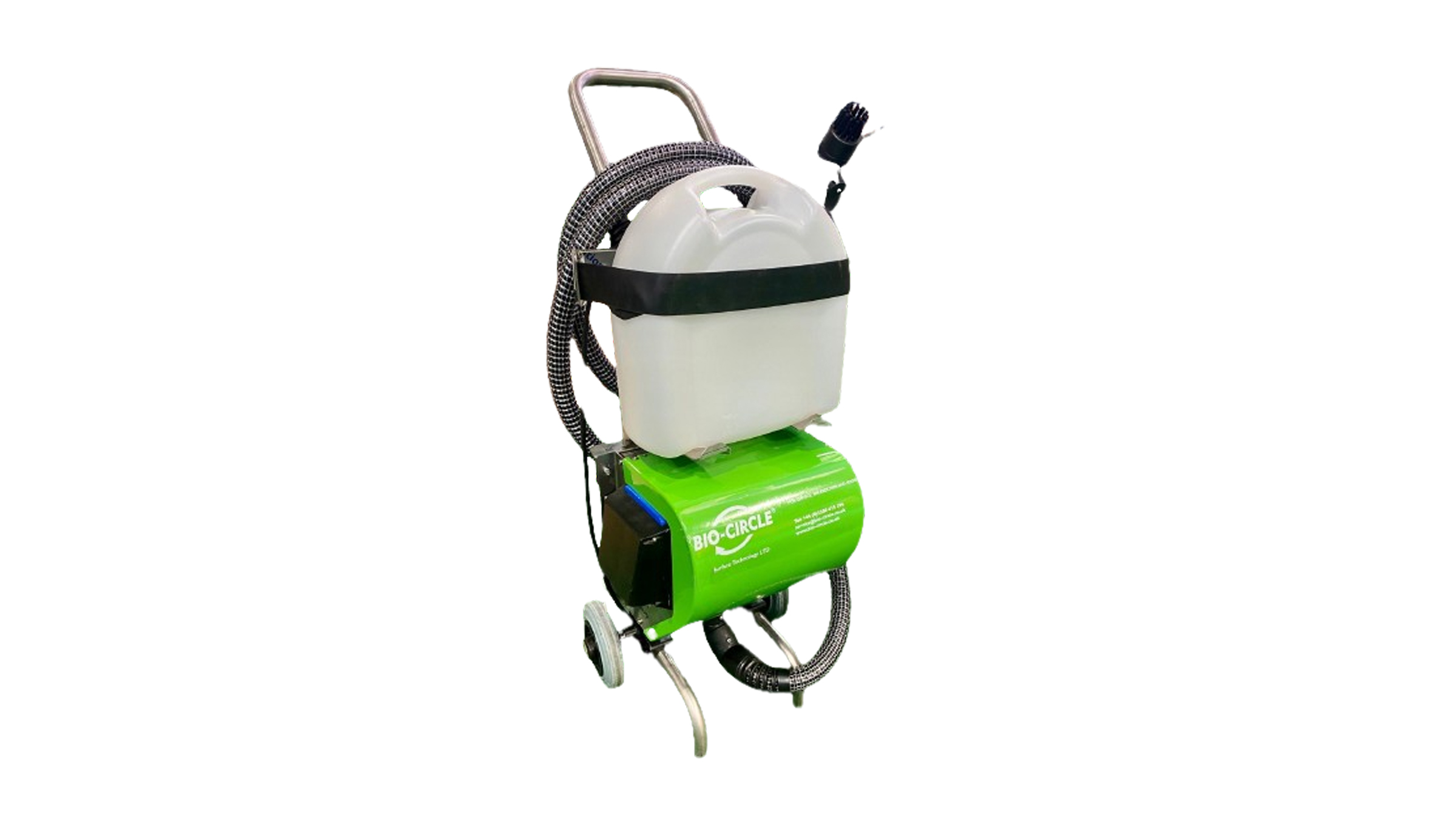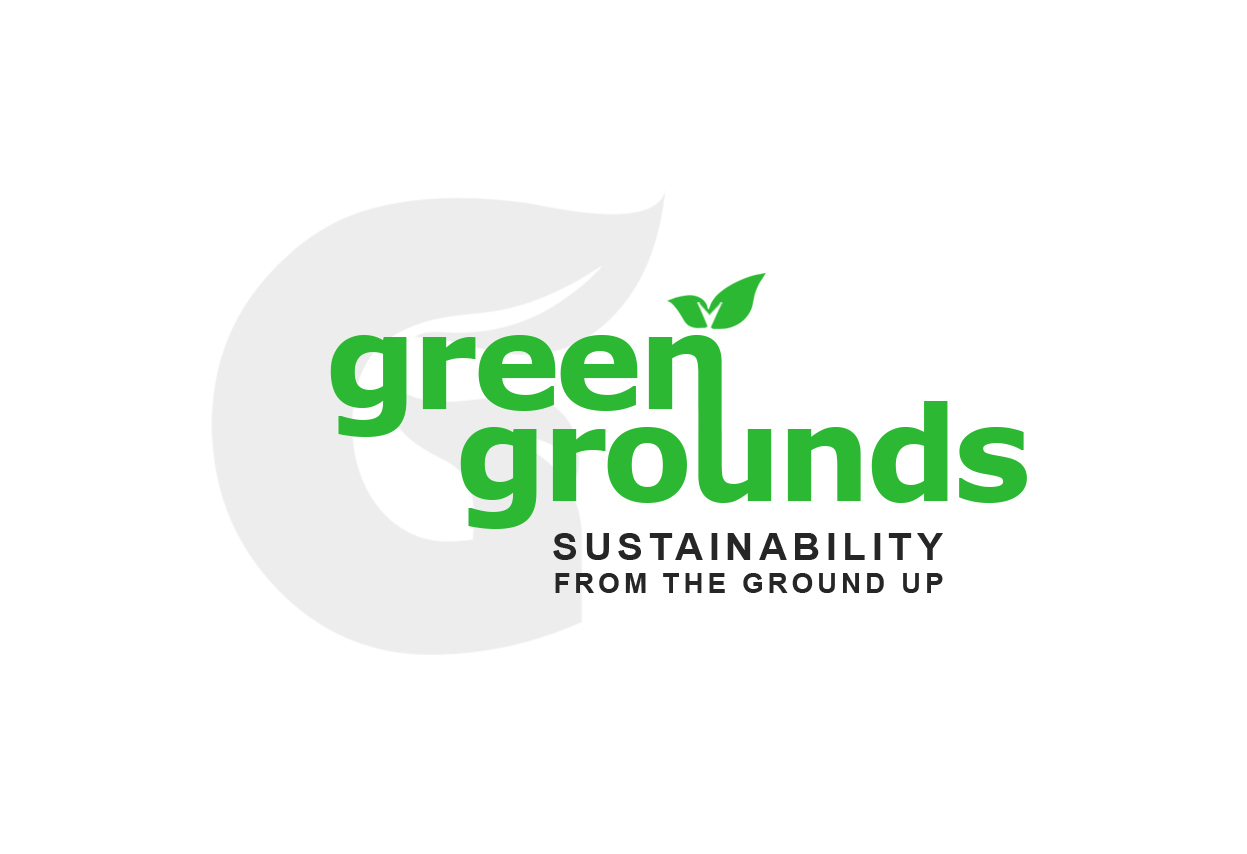How grounds teams can make Euro 2028 the greenest tournament ever
When the UK and Ireland host UEFA Euro 2028, the next men’s European football championship, the spotlight won’t just be on the players, it will be on the pitches, too – and the grounds teams that ensure pitch presentation and playing conditions are of the highest quality.

For the first time, groundscare professionals have the opportunity to play a headline role in a major tournament when it comes to sustainability. A tournament last attended by six million visitors and watched by over five billion spectators, it’s an opportunity to show that sustainability doesn’t just tick a box but has the power to make a meaningful, long lasting contribution to the industry on a global scale.
And it’s an opportunity that GreenGrounds – an initiative started by Bio-Circle, a specialist in environmentally friendly cleaning technologies, and Reesink Turfcare, a leading UK distributor of sustainable turfcare machinery – wants to make a reality.
In this article, we catch up with Mark Tomlinson, Head of Environmental and Sustainability Projects at Bio-Circle, about the GreenGrounds initiative and why this is a pivotal time for sustainability in groundscare.

Mark Tomlinson
Head of Environmental and Sustainability Projects, Bio-CircleWhat is GreenGrounds – and why does it matter?
“GreenGrounds was launched to champion sustainability within the turf and groundscare industries,” says Mark. “We’re encouraging facilities to focus on groundscare and see it as an essential part of their sustainability strategy.”
GreenGrounds offers free guidance, shared knowledge, and realistic, practical solutions for sports clubs and venues who share that vision. “We work with nature; it’s a beautiful part of the job,” he continues. “But there’s no support network in our industry to protect it. That’s why GreenGrounds was founded – to start the conversation and help guide groundscare towards a more sustainable future.”
From high-volume water use to harmful solvent exposure, many groundscare practices are not just outdated. They’re environmentally hazardous and unnecessarily risky for the people carrying them out.
By making environmentally responsible practices feel less overwhelming and more achievable for clubs at any level, GreenGounds gives grounds teams the recognition and voice they deserve in the wider sustainability conversation.
Sustainability starts from the turf up
Too often, sustainability is only thought of in terms of carbon emission reduction, with groundscare overlooked in a club or organisation’s environmental efforts. But sustainable operations should start from the ground up. You can’t be a sustainable club if your turf isn’t managed sustainably. As Mark explains, groundscare is the missing piece in the sustainability puzzle.
“At Bio-Circle, we’ve developed a portfolio of sustainable cleaning solutions that can significantly reduce the environmental impacts of routine practices like washdown processes. But with no industry standard for environmentally-friendly cleaning practices, widespread adoption is slower than it should be,” says Mark. “In the build up to Euro 2028, that needs to change.”

Making the beautiful game more sustainable
Since the English Football League launched the new and improved EFL Green Clubs earlier this year, a scheme which helps clubs improve their environmental sustainability in partnership with GreenCode, an internationally-recognised accreditation scheme, we’re seeing more clubs working towards a green grounds policy.
“Initiatives like EFL Green Clubs, which 36 teams have now signed up to, are essential for making real, positive change in sport,” says Mark. “It gives clubs and their grounds teams structure and assessment criteria to meet.
“At these clubs, the central focus is quite literally the turf. But the way that turf is managed somehow falls by the wayside when it comes to sustainability. By partnering with an industry leader like Reesink, GreenGrounds can help drive support for initiatives like EFL Green Clubs and raise awareness about sustainable groundscare.”
Setting a new benchmark for green groundscare
But for that to happen at scale, there must be shared standards and measurable criteria for grounds teams to work towards. For Mark, what makes sense most is a GreenGrounds charter that can act as the benchmark for sustainable groundscare.
“Let’s not forget how important sustainability is for groundscare,” explains Mark. “Heavy water use, pesticides, chemical runoff entering natural rivers, streams, and brooks. Those tending to machinery also often work with solvents containing volatile organic compounds (VOCs), which aren’t just bad for the environment – they’re also bad for our health.”
Why industry bodies must get behind this
We need to develop safer practices for all. So why not start now?
Companies like Bio-Circle have pioneered eco-friendly washing systems to significantly cut water use, VOC-free solvents, and other sustainable cleaning solutions – but to enact change across groundscare, industry organisations need to play their part.
As Mark explains: “Because they have a bigger collective call, industry organisations must work with grounds teams to help start their sustainability journey. Only then we can make a real difference in our industry.
“Together, they can encourage sports facilities to work towards a shared and common goal: a new, revolutionary GreenGrounds charter that can act as a blueprint for clubs and sports facilities across the country.”
Clubs leading the way in sustainable groundscare
Some clubs aren’t waiting for sustainability to be handed down as a mandate. They’re already proving what’s possible, and in the process setting new standards for sustainable groundscare.
Forest Green Rovers: the benchmark for sustainable football
Recognised as the world’s first UN-certified carbon-neutral football club, Forest Green Rovers has achieved global status with a local league budget. “They set themselves a goal of what they wanted to be – the most sustainable club in the world – and they did it,” says Mark.
“By working with partners like Bio-Circle, Forest Green Rovers has won many awards for its green efforts, including the Elite Organisation of the Year at the BBC Green Sport Awards. Premier League and Bundesliga clubs visit them all the time to learn more about their sustainability work, which is phenomenal when you consider the fact they’re a low league club.
Using a smart blend of water and air, EKO creates a fine mist that delivers high cleaning power while cutting water usage by 39.5 litres per minute. “That equates to around 120,000 litres of water saved per washdown, per site – with zero chemical runoff and no damage to battery-powered equipment,” explains Mark.
“When you consider that big clubs have a stadium, multiple training grounds, and an academy, that’s an incredible amount of water you’re saving during every washdown.”
A growing movement across clubs and stadiums
There are many other examples of sustainable groundscare. “We’re seeing areas of stadiums and training grounds transformed with ponds and wildflower mix, as well as orchards and beehives,” says Mark. “Grounds staff are even encouraged to attend beekeeping courses, highlighting a cultural shift towards better environmental engagement.
“It shows just how brilliant our industry can be. These clubs and stadiums are showing what’s possible and leading by example. And the best part is that none of these things require a Premier League budget – any and all clubs can implement these strategies.”
The road to Euro 2028 runs green
There’s no better opportunity to demonstrate how green groundscare can be than Euro 2028. More than that, though, it’s an opportunity to give grounds teams the platform they deserve.
Nine stadiums have been chosen to host the tournament, including Wembley Stadium, the home of English football. Beyond the goals and the glory, these venues now have the chance to make history in another way: by setting a new environmental benchmark for international sport.
The big goal: hosting the most sustainable Euros ever
While an investment of nearly €30 million saw UEFA implement over 120 sustainability actions for Euro 2024, groundscare wasn’t included. “All previous sports tournaments have missed something,” says Mark. “They’ve been praised for being sustainable. But what about groundscare?
“The tournament should be about making a statement that people will listen to and leaving a legacy we can be proud of,” Mark continues. “If we commit to adopting environmentally responsible groundscare practices, from reducing water use and chemical runoff to embracing cleaner technologies, then Euro 2028 will be more than a brilliant moment for British sport. It will be remembered as the moment our industry came together and changed the game for good.”
Join the GreenGrounds conversation
Grounds teams have always played an essential role in the success of major tournaments, ensuring the surfaces meet elite performance standards. Now they deserve to play an essential role in sustainability, too.
GreenGrounds is here to help make that happen. “We want to be part of your sustainability journey,” concludes Mark. “We can help grounds teams make a case for being involved in the overarching green strategy of their clubs, offering practical guidance and supporting the professionals already doing the work behind the scenes. Only then can we make sustainable groundscare a reality.”
Will you be part of the change? Learn more about Reesink, Bio-Circle, and GreenGrounds by calling 01480 226800 or finding us at reesinkturfcare.co.uk
